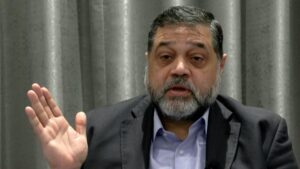Experts warn Powell to ‘think twice before hiking up interest rates again’
Economists and progressive policy advocates on Tuesday urged the Federal Reserve to abandon its plans for further interest rate hikes—or, at the very least, slow down significantly—after the Labor Department released data showing that inflation cooled more than expected in November, the second consecutive month of lighter-than-anticipated price increases.
The Bureau of Labor Statistics said Tuesday that the Consumer Price Index (CPI) rose just 0.1% last month compared to a 0.4% increase in October as inflationary pressures eased across the economy, from food to transportation to medical services. Compared to a year ago, inflation was up 7.1% in November, the lowest level since December 2021.
Josh Bivens, research director at the Economic Policy Institute, similarly argued Tuesday that the new numbers “definitely should solidify any urge by the Fed to ramp down the pace of interest rate hikes.”
“There was nothing in today’s report that says anything but ‘inflation slowing a lot,’ even with the economy still looking healthy on many measures,” Bivens added. “In short, a ‘soft landing’ remains in reach, and the Fed should try really hard to secure it.”
The new CPI figures were released as Fed policymakers prepared for their latest two-day meeting, which is likely going to conclude Wednesday with Chair Jerome Powell announcing another sizeable interest rate increase—likely 50 basis points, a slight slowdown after four consecutive hikes of 75 basis points.
Powell, who has faced mounting backlash from economists and lawmakers for intentionally putting the U.S. economy at greater risk of recession, has previously said the Fed intends to continue raising rates into 2023 and plans to keep them at a higher level for an extended period as long as inflation remains elevated.
That would be a major mistake, former U.S. Labor Secretary Robert Reich warned in an op-ed for The Guardian Tuesday morning.
“Profits drive domestic inflation, not wages. And interest rate hikes don’t reduce profit-driven inflation—at least not directly. Instead, workers and consumers take the hit,” Reich wrote. “It’s important that Americans know the truth. Seven Fed rate hikes in just nine months have not dented corporate power to raise prices and profit margins.”
In recent weeks, a growing chorus of experts has joined Reich in sounding the alarm over the recessionary risks inherent in the Fed’s approach, which aims to rein in prices by tamping down economic demand, slowing hiring, and cutting workers’ wages. Powell has explicitly said “pain” is on the horizon for families as the Fed moves ahead with its rate increases, and the Fed’s own estimates have suggested its policy moves could unnecessarily throw more than a million people out of work in the U.S.
But despite mounting outside pressure to change course, the Wall Street Journal reported Tuesday that “the Federal Reserve remains on track to lift interest rates by 0.5 percentage point on Wednesday to fight high inflation.”
Originally published at Commondreams.org.










